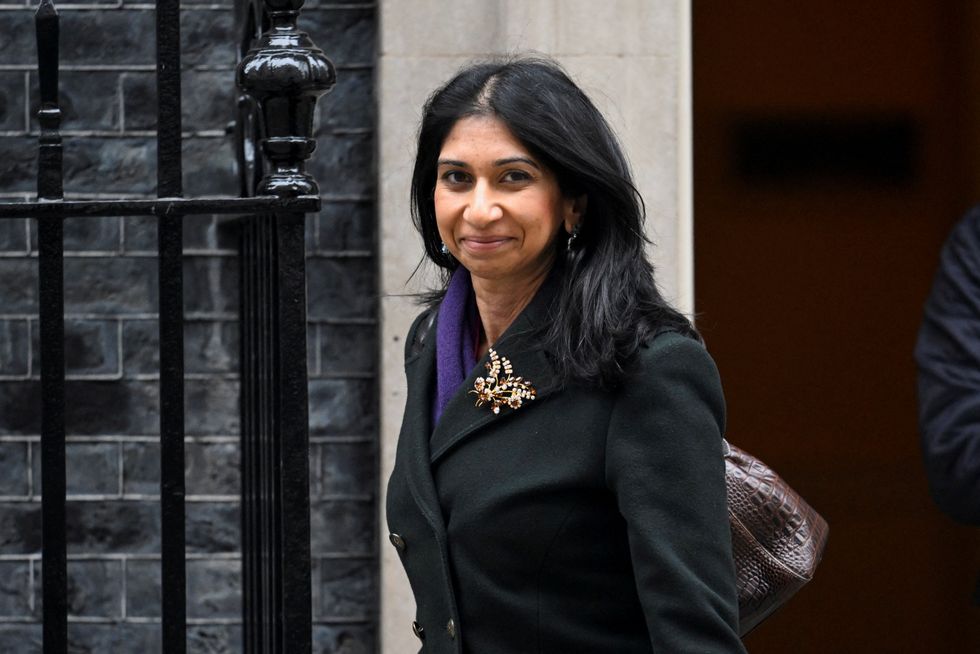Braverman's migrant crisis solution only works in the short term. There's a far bigger problem that must be fixed, says Stephen Dixon

Until this huge backlog is sorted out, the Government is very limited in its options
GB News

Until this huge backlog is sorted out, the Government is very limited in its options
It's no surprise the Government's plans are controversial, but they fail to tackle the wider problem
Housing thousands of migrants in hotels across the UK has proved to be hugely controversial, not to mention hugely expensive at more than £6million a day.
In response to the growing crisis, the Government has unveiled plans to house migrants on disused military bases and student accommodation. It will also consider using ships. No surprise that all this is proving controversial.
One of the sites is RAF Scrampton, the home of the Dam Busters, and more recently the Red Arrows.
People nearby are in uproar. They want this site to become a museum to one of the most remarkable military operations in British history. So where should we draw the line?

Home Secretary Suella Braverman announced the new policy yesterday
Toby MelvilleHotel accommodation has to stop. It’s hugely damaging for the areas affected.
Let’s be clear, I’m not criticising the people being housed, that’s a different discussion, but having towns where tourism is decimated because all accommodation is taken away, causes problems that will last for years.
It only takes a few months of people saying "we can’t stay there" to ruin a town’s reputation for visitors and it will take years to build back, affecting local businesses, jobs and prosperity.
A lot of that damage has already been done and it’s going to be an uphill battle for those areas to recover, especially in the midst of a cost of living crisis.
So is this "rudimentary" accommodation the answer? Well, despite the objections of those affected, probably yes.
Until this huge backlog is sorted out, the Government is very limited in its options. It cannot, at the moment at least, start mass deportation. Once people are on these shores, they need to sort out who is who and who can stay.
Of course these new schemes will cost a lot of money, hundreds of millions of pounds. What we need to work out is how that will stack up against the £2.19billion the hotel scheme currently costs every year.
None of it matters though unless the Government can bring down the number of illegal migrants getting to the UK.
The Home Secretary says “our flagship permission to travel scheme will mean that it is easier for our friends to come to and contribute to the UK, but harder for those we do not want to come here”.
That sounds sensible on the surface. She points out that since Brexit we have, “for the first time in decades, full democratic control of our borders”, but it certainly doesn’t feel that way does it?
Labour MP Aspana Begum says the policy “persecutes the already persecuted”. She is talking about asylum seekers though, which this policy is not meant to be aimed at. We are told it is to stop illegal migration. There is a huge difference which often gets lost in the argument.
It does though beg the question, how does the Government aim to provide safe and legal routes for those who have a legitimate reason to seek asylum on our shores?
Whatever the Government does to reduce - or stop- illegal migration, or to save money and communities as it processes those people here, until that process is sped up and the backlog cleared we’ll have problems in the UK for years to come.
The Government website says “you will normally get a decision on an asylum claim in six months”. According to the university of Oxford, in 2021 only four per cent had an application heard within six months – and that just can’t continue.